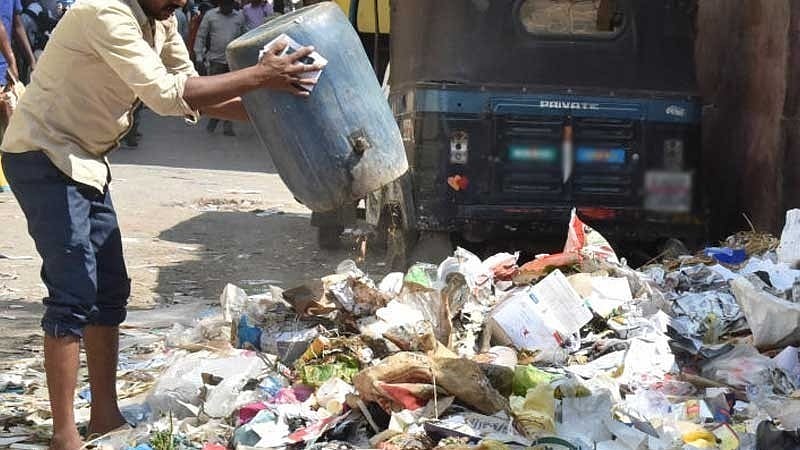
Representative image of garbage.
Credit: DH File Photo
Bengaluru: With garbage black spots mushrooming across the city, the Bengaluru Solid Waste Management Limited (BSWML) has come under criticism for failing to prevent littering in public places despite employing marshals.
To send a strong message, the civic body has come up with a novel plan of dumping garbage back at the homes of habitual offenders.
Beginning Thursday, BSWML will begin returning waste collected from black spots by tracing the houses of offenders as part of an awareness and enforcement drive.
Karee Gowda, CEO of BSWML, described the initiative as a "last resort".
“Despite awareness drives and fines, people continue to litter without handing it over to our vehicles. This move is meant to hold them accountable,” he said.
Marshals were deployed in all wards to identify repeat violators and video record them at the time of dumping the waste for evidence.
Officials said the habitual litterbugs were identified only in places where the door-to-door waste collection is robust.
While BSWML believes the move will act as a deterrent, especially among households who are yet to understand the importance of waste segregation and cleanliness, experts want the authorities to address loopholes in the existing waste collection system, too.
They cite a shortage of auto tippers in some Assembly segments, irregular collection timings and instances where garbage vehicles skip houses that require drivers to wait or take a longer route.
There are also instances when drivers of auto tippers decline to collect some type of waste such as thermocol, tender coconut, broken glass pieces, etc.
So far, BSWML has identified at least one habitual offender in all 198 wards, but this represents only a fraction of the problem.
Much of the illegal dumping occurs at night or from moving vehicles, which often goes undetected.